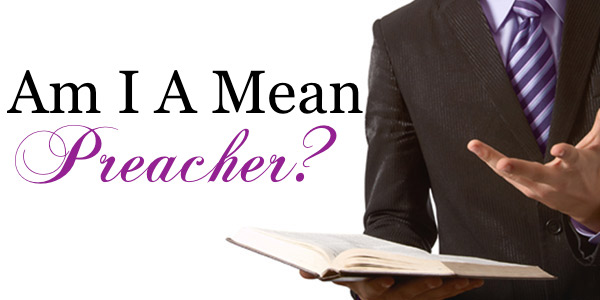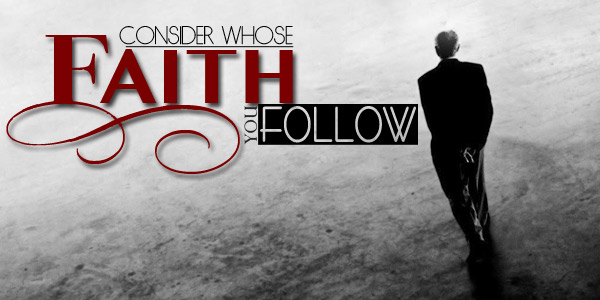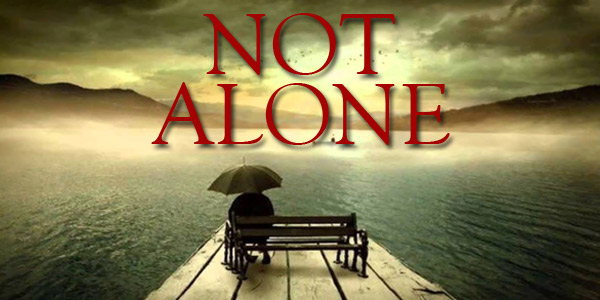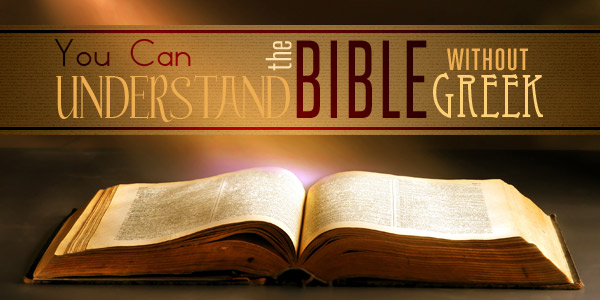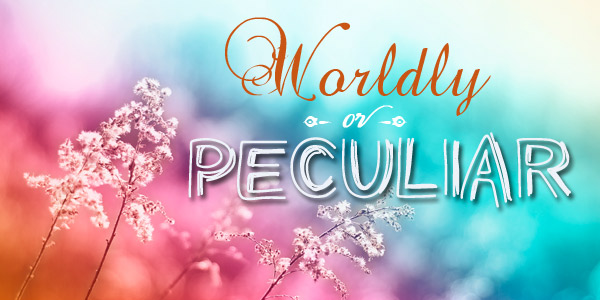The Silencing of Christianity in Our Nation’s Public Schools
 Millions of vulnerable kids filter through our public school systems every day, the majority of whom do not know Jesus. And, given the tremendous spiritual poverty in our schools, many, if not most, of these kids will grow up never knowing that there is a God who loves them and wants to give them eternal life. Many of them will never hear the name of Jesus except as a curse word.
Millions of vulnerable kids filter through our public school systems every day, the majority of whom do not know Jesus. And, given the tremendous spiritual poverty in our schools, many, if not most, of these kids will grow up never knowing that there is a God who loves them and wants to give them eternal life. Many of them will never hear the name of Jesus except as a curse word.
This is due, in large part, to the decades-long concerted effort on the part of anti-religion, liberal, atheist, and other so-called “progressive” groups to completely eradicate the name of Jesus from the public square and from our public schools. These groups consistently seek out and target schools that still allow Christmas carols, teach about the history of Christianity, or permit Bible clubs, claiming that such actions violate the First Amendment Establishment clause, otherwise known as the “separation of church and state” doctrine. These anti-religion groups intimidate by threatening to sue the school or the individual teachers and staff members for actions that are, the vast majority of the time, perfectly legal. These intimidation tactics have led public school administrators, teachers, and staff, to unnecessarily suppress religious expression in the halls and classrooms FAR more than is required by law.
Despite what the ACLU and other atheist and “progressive” organizations would have you believe, public school students and school personnel are NOT required to leave their faith behind when they walk through the schoolhouse doors. Students in particular have a tremendous amount of freedom to exercise their religion at school, and parents should encourage them to do so. School teachers and administrators, while more limited in what they can do and say about religion in front of students, still have certain freedoms to exercise their faith.
There are kids and teens all across this country who are waiting for one person – just one – who will give them hope…the hope that only Jesus can provide. That hope may come in the form of a second grader’s book report about the Bible, a red and white-striped Christmas pencil with a note attached explaining the Christian history of the candy cane, or a 7th grader’s t-shirt which says, “With God, all things are possible.” We may never know on this side of eternity how God might use a child’s—possibly your child’s—Christian witness in the public schools of our country. Be educated. Be informed. Be a light. Because with God, all things ARE possible and His Word will not return void.
WHAT’S LEGAL IN THE PUBLIC SCHOOL?
At the National Center for Life and Liberty, we receive calls and emails all throughout the year from parents, students, teachers, school board members, administrators, and state officials, wanting to know which expressions of religion are legally permissible and/or prohibited in the public schools. While this list is by no means exhaustive, here are a few of the most common ones we are asked about each year:
1. Are students and teachers permitted to pray during school? YES
Students may voluntarily pray individually or in groups before meals, tests and at any other time when the prayer will not disrupt classroom instruction. Teachers have a similar constitutional free speech right to voluntarily pray or discuss religion with co-workers in the same manner that they might gather to discuss politics or a recent movie (such as in a teachers’ lounge), so long as the prayer cannot be interpreted as school-sponsored and takes place outside the view of students. Only official teacher-led prayer and Bible reading or spiritual interactions between students and teachers have been held to be unconstitutional.
2. May students and/or teachers bring Bibles to school? YES
Students may bring Bibles to school and read them during free reading time, study halls, etc. Teachers may do the same; however, in an increasing number of jurisdictions, they are not permitted to keep their Bibles on their desks as this has been interpreted by some courts as an endorsement (or “establishment”) of religion, thus violating the First Amendment. However, teachers may keep their Bibles in a drawer or on their electronic devices to read during their free time or when students are not in the classroom.
3. May students use religious-themed school supplies (notebooks, pencils, etc)? YES
Students may use notebooks, pencils, and other material with religious logos or sayings, including Bible verses, to the same extent other students may use supplies with other designs and/or sayings.
4. May students wear religious-themed clothing or accessories? YES
To the extent that students are permitted to wear clothing and accessories that display secular graphics or words, students may wear t-shirts and other clothing and accessories that display religious messages.
 5. May public school sports players add Bible verse references to their game face paint? MAYBE
5. May public school sports players add Bible verse references to their game face paint? MAYBE
Several years ago, homeschooler-turned-NFL star Tim Tebow added Bible verse references to the black paint under his eyes during his college football games. After complaints surfaced, the NCAA banned all inscriptions in players’ black eye paint . . . but a ban on just Bible verses would have been arguably unconstitutional. Public schools may ban players from using face paint, or they may limit the face paint to a picture of the mascot or some other design. However, when the school permits any level of discretionary add-on designs or words by students, the school may not then ban students from choosing to include Bible verses or religious references, so long as they meet any other neutral requirements for face painting (color/style/appropriateness, etc).
6. May students organize Bible Clubs in public school? YES
School administrators are required under the federal Equal Access Act to allow students to organize and run Bible clubs at school with the same rights to advertising, funding, etc., as other school clubs.
7. Are teachers permitted to discuss Christianity and the Bible in the classroom? YES
Religion, including Christianity, may be taught in public schools as part of the academic curriculum, as long as the religious instruction is done in a neutral, objective manner and the subject naturally arises in the course of the academic curriculum. Teachers may not, however, share their personal religious views, such as telling students while in school or at school functions, that Christianity is the only true “religion,” or that the Bible is the inspired Word of God. To do so would be considered an unconstitutional establishment of religion, in violation of the First Amendment. Teachers may, however, discuss these matters with students on their own time while off school property (such as at church or other non-school-related functions).
8. Are students allowed to discuss Christianity and the Bible in the classroom and in school assignments? YES
A teacher must permit students to share religious opinions or information in class discussions or in student assignments where students choose the topics, as long as such sharing is relevant to the assignment or to the topic at hand and as long as the exchange is civil and not disruptive. Teachers have a great deal of discretion to permit students to enjoy free speech rights with regard to religion while in the classroom. The teacher should merely ensure that other students in the class understand that the book or other speech is expressing the student’s religious belief and not the school’s or the teacher’s.
9. Are teachers permitted to pray with students or assist with school Bible Clubs? IT DEPENDS
Teachers may pray with students outside of class time and off school property (i.e., some teachers attend church with their students), but not during school-sponsored events or Bible clubs. While teachers may be advisors to these clubs and can meet with their leaders off-campus to assist them in running the club, they may not participate in the club’s religious activities, such as prayer, Bible reading, and witnessing on camp.
10. May public schools ban parents and/or local businesses from running paid religious ads in school-sponsored publications? NO
Schools may not ban paid religious advertisements in school publications merely because the content is religious. To do so would be content-based discrimination and a First Amendment Free Speech violation. Schools must permit religious ads in their yearbooks, printed sports programs, school newspapers, and other school publications to the same extent that secular advertisements are considered and permitted.
11. Are students permitted to choose religious material for a class show-and-tell or a school talent show? YES
The school may not prohibit a student from bringing in a Bible or a religious item and discussing it in a show-and-tell forum, merely because the item is religious in nature. If a teacher has specifically limited the subject matter of the show-and-tell to a particular type of item (stuffed animals, for example), a student could not showcase his or her Bible, because it does not meet the assignment requirements (although in this case she could bring in a teddy bear that says, “Jesus Loves Me”). In a talent show forum, students may choose religious themed songs, poems or other talent show pieces as long as they otherwise meet the criteria for the program.
12. Are “moments of silence” still allowed? YES
While schools are not required to offer a “moment of silence” or other quiet period during the school day, if they do so, students are free to pray silently, or not to pray, during these periods of time. Teachers and other school employees may neither encourage nor discourage students from praying during such time periods.
13. May teachers include religious references in correspondence with parents of students? IT DEPENDS
If a teacher is corresponding with the parent in her capacity as the student’s teacher, school officials may prohibit the use of religious references. Since the school is permitted to control communications between teachers and parents, the teacher should abide by such instructions and omit any religious references. On the other hand, if the teacher is certain that such references would be welcome by the parent and her school superiors have not prohibited it, the teacher should use her best judgment and her knowledge of the student and his family to determine whether to include religious references in parent communications. Of course, outside the school environment, such as at church or at non-school activities, teachers and parents may communicate freely.
14. May students opt out of activities or assignments that violate their or their parents’ sincerely-held religious beliefs? IN MOST CASES, YES
Schools are generally required to accommodate the religious beliefs of their students. Parents have a free exercise claim, in many cases, to prevent their children from being taught material that would negatively impact or burden their own sincerely-held religious beliefs. If the school does not have a compelling reason for requiring every child to participate in a particular activity, class or assignment, the school must allow the student to “opt out” of the activity, class or assignment at the request of the parent. The opt out process is often made considerably smoother when the parent provides an acceptable alternative assignment possibility along with the opt out request. For example, if parents object to their child reading Harry Potter, they could recommend that their child read a comparable fantasy series such as the Chronicles of Narnia by C.S. Lewis.
15. Are public schools permitted to celebrate Christmas (and actually call it “Christmas”)? YES
Schools are still permitted to call “Christmas Break” by that name (as opposed to a “Winter Break”). Teachers may host classroom Christmas parties, include Christmas carols in Christmas concerts (as long as they are interspersed with other “secular” holiday songs), and may say, “Merry Christmas” to their students and colleagues as part of a historical and cultural celebration of Christmas. Teachers and administrators may not use these occasions to proselytize their students; however, students may hand out Christmas cards and gifts with religious messages to the same extent and at the same time as other students are permitted to hand out secular cards and gifts. If a teacher or school chooses to celebrate Christmas, the school should also consider celebrating holidays of other religions represented in the school. Such celebrations are educational as well as being a permitted acknowledgment of community practices and traditions.
IF YOU HAVE ANY QUESTIONS ABOUT WHAT EXPRESSIONS OF FAITH ARE LEGAL IN THE PUBLIC SCHOOL CONTACT THE NATIONAL CENTER FOR LIFE AND LIBERTY:
National Center for Life and Liberty
P.O. Box 270548
Flower Mound, TX 75027-0548
Phone: 888.233.NCLL (6255)
Email: info@ncll.org
Website: www.ncll.org
 When I was a child in school, one was considered a sissy if he cried about some little thing happening to him. No one beat him up for it, he was just shunned and thought of as being wimpy, soft and without strength or perhaps immature. We probably quit playing with him.
When I was a child in school, one was considered a sissy if he cried about some little thing happening to him. No one beat him up for it, he was just shunned and thought of as being wimpy, soft and without strength or perhaps immature. We probably quit playing with him. But what is new? The crying, the whining, the poor me, why-is-everybody-picking-on-me mentality? Maybe this “new generation” of fundamental Baptists were brought up in homes without dads, in homes with dominant mothers, or in homes with working mothers, or (pardon me for stepping this sacred cow) in homes with homeschool mothers who ran the home in perfect justice and female leadership. I don’t know.
But what is new? The crying, the whining, the poor me, why-is-everybody-picking-on-me mentality? Maybe this “new generation” of fundamental Baptists were brought up in homes without dads, in homes with dominant mothers, or in homes with working mothers, or (pardon me for stepping this sacred cow) in homes with homeschool mothers who ran the home in perfect justice and female leadership. I don’t know.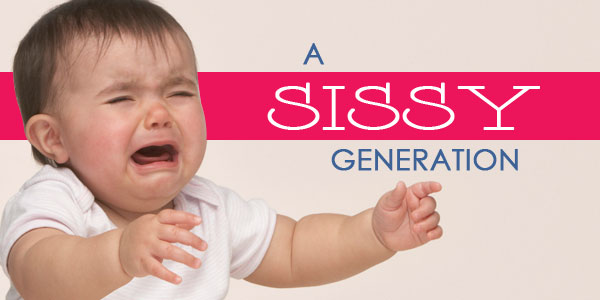
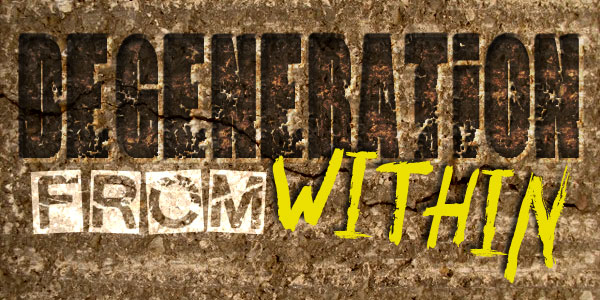


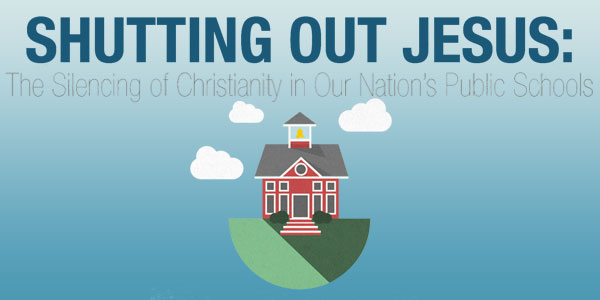




 We live among a generation of Baptists who want to call themselves Independent Fundamental Baptists while criticizing the basic principles of Independent Fundamental Bible-believing Baptists. They say older churches (older INDEPENDENT BIBLE BELIEVING BAPTISTS) are this or that, and they criticize us for being one way or another, but these labels they criticize us for having are those by which we have always been identified — even to the point of strong differences among us. Remember Paul and Barnabas fussing over John Mark? Baptists have always been strong, anchored, and a little stubborn. If John the Baptist were to come to town today, do not think for a minute that John the Baptist would attend a “fellowship” rather than a Baptist church. He would expect some preaching — straight forward, blunt, and perhaps some “name-calling” preaching; for that is how he preached, and he was the first Baptist. This “new generation” of Independent Baptists wants to keep the name, but not the distinctives that identify us.
We live among a generation of Baptists who want to call themselves Independent Fundamental Baptists while criticizing the basic principles of Independent Fundamental Bible-believing Baptists. They say older churches (older INDEPENDENT BIBLE BELIEVING BAPTISTS) are this or that, and they criticize us for being one way or another, but these labels they criticize us for having are those by which we have always been identified — even to the point of strong differences among us. Remember Paul and Barnabas fussing over John Mark? Baptists have always been strong, anchored, and a little stubborn. If John the Baptist were to come to town today, do not think for a minute that John the Baptist would attend a “fellowship” rather than a Baptist church. He would expect some preaching — straight forward, blunt, and perhaps some “name-calling” preaching; for that is how he preached, and he was the first Baptist. This “new generation” of Independent Baptists wants to keep the name, but not the distinctives that identify us.